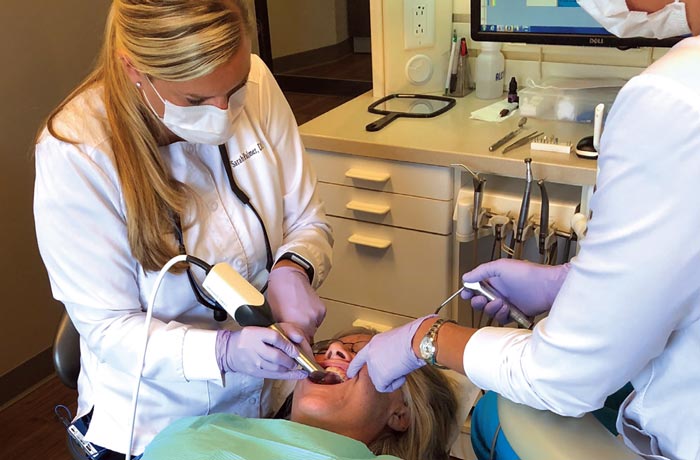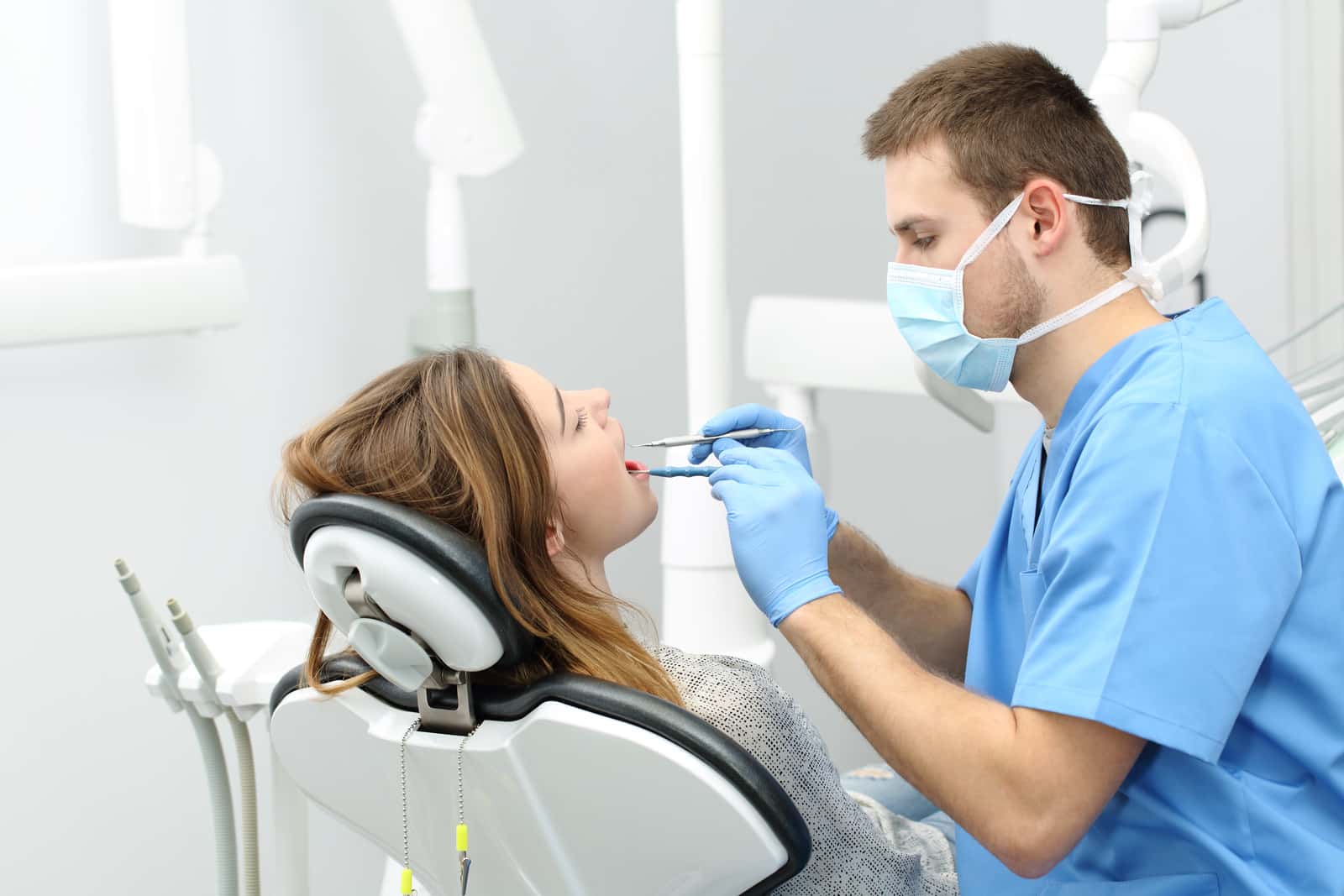The Advantages of Routine Visits to a Dentist Eugene Oregon
The Advantages of Routine Visits to a Dentist Eugene Oregon
Blog Article
A Guide to Usual Dental Problems That Need a Dental expert's Care
Understanding the series of oral problems that necessitate specialist treatment is critical for maintaining optimal dental health. Toothaches, as an example, can be symptomatic of serious concerns such as cavities, cracked teeth, or abscesses, each calling for details interventions like dental fillings or origin canals. Gum tissue disease, from the very early stages of gingivitis to extra serious periodontitis, underscores the value of routine dental examinations and cleanings. In addition, affected wisdom teeth and jaw disorders can introduce substantial discomfort and issues. Guaranteeing timely visits to the dentist can minimize these problems effectively, however what specifically are the indications and therapies entailed?
Toothaches
Toothaches are a typical dental condition that can range from light discomfort to serious pain, often suggesting an underlying problem that needs expert interest. This pain can stem from a selection of sources, including oral tooth cavities, broken or fractured teeth, and oral abscesses. Each of these problems presents significant dangers if left without treatment, potentially causing extra serious issues.
Tooth decays, also called cavities, are triggered by the build-up of plaque that deteriorates tooth enamel, resulting in holes or pits in the impacted teeth (dentist in eugene oregon). Cracked or fractured teeth, on the various other hand, might result from injury, grinding, or biting into hard objects. These architectural damages can expose the sensitive inner layers of the tooth, triggering pain and increasing the risk of infection. Abscesses hurt infections at the root of a tooth or between a tooth and the periodontal, usually resulting from serious decay or neglected tooth cavities.
Effective therapy of toothaches involves resolving the source. This may include dental fillings for dental caries, crowns for fractured teeth, or origin canals and antibiotics for abscesses. Early treatment by a dental specialist can stop more deterioration and minimize discomfort, guaranteeing optimal dental health.
Gum Illness
Periodontal disease, a prevalent yet commonly neglected oral problem, manifests via inflammation and infection of the gum tissues and supporting cells. If left neglected, gingivitis can proceed to periodontitis, a more extreme type defined by the destruction of the sustaining bone and connective cells, ultimately leading to tooth loss.
The main source of gum tissue condition is bacterial plaque, a sticky, anemic movie that regularly creates on teeth. Poor dental hygiene, smoking, hereditary proneness, and specific medical conditions, such as diabetic issues, can aggravate the risk of establishing gum condition. Normal oral exams are important for early detection and management of this problem.
Therapy for gum tissue disease ranges from expert oral cleaning and scaling to advanced treatments like root planing and periodontal surgical procedure, relying on the extent. Preserving great oral health techniques, consisting of brushing two times daily, flossing, and making use of an antibacterial mouth wash, can significantly reduce the danger of periodontal disease and promote much healthier gum tissues.
Tooth Cavities
Tooth cavities, additionally recognized as tooth decays, are an usual dental condition identified by the destruction of tooth enamel as a result of acid-producing germs in the mouth. These germs flourish on sugars and starches from food and drinks, producing acids that gradually deteriorate the enamel, leading to dental caries formation.
Early-stage cavities might disappoint symptoms, but as they advance, they can cause toothache, level of sensitivity to warm or cool, visible openings or pits in the teeth, and staining. If left neglected, tooth cavities can pass through much deeper layers of the tooth, possibly leading to serious pain, infection, and also missing teeth.
Avoiding cavities includes a mix of good oral hygiene methods and nutritional practices. Normal brushing with fluoride tooth paste, flossing, and routine oral check-ups are important. Dental professionals may also suggest additional preventive procedures, such as fluoride treatments and dental sealants, to shield teeth from decay.
Therapy for cavities depends on their intensity. Minor cavities can be attended to with dental fillings, which recover the tooth's framework. If the decay has actually reached the tooth's pulp, much more advanced instances may need crowns or even root canal treatment. Timely treatment by a dental expert is vital to prevent complications and preserve general oral health and wellness.

Impacted Knowledge Teeth
Influenced knowledge teeth are a prevalent dental concern that occurs when the third molars, frequently described as knowledge teeth, fall short to totally arise or straighten properly within the mouth. This problem usually arises from insufficient space in the jaw or an irregular growth angle of the teeth. Impacted knowledge teeth can cause a selection of complications, consisting of pain, damages, and infection to surrounding teeth.
When wisdom teeth end up being affected, they are frequently partially emerged or continue to be entirely underneath the gum line. This partial eruption can create a pathway for my website germs to go into the periodontals, causing infections that show up as swelling, pain, and also high temperature. In addition, impacted knowledge teeth can exert pressure on surrounding teeth, potentially causing crowding or shifting.
A thorough dental evaluation, normally involving X-rays, is crucial for identifying affected knowledge teeth. Regular dental examinations are a good idea to keep track of the condition and keep oral health and wellness.
Jaw Disorders
Jaw conditions, jointly known as temporomandibular joint (TMJ) problems, include a variety of problems that influence the jaw joint and bordering muscular tissues. These problems can materialize with signs such as discomfort or tenderness in the jaw, trouble chewing, a clicking or standing out sound when opening up or closing the mouth, and also persistent frustrations. TMJ problems can occur from different factors, consisting of arthritis, jaw injury, or habitual actions like teeth grinding or jaw clenching.
Medical diagnosis of TMJ conditions normally involves a detailed assessment by a dentist, including a physical exam of the jaw, dental X-rays, and in some cases advanced imaging methods like MRI or CT checks to evaluate the joint's problem. Therapy alternatives vary depending upon the intensity of the problem. Non-invasive methods such as physical treatment, oral splints, and drugs focused on minimizing swelling and pain are usually first-line therapies. In extra severe situations, surgical treatments might be required to correct structural issues within the joint.
Very early intervention by a dental specialist is vital to avoid the development of TMJ conditions and to keep general oral health and wellness. Individuals experiencing consistent jaw discomfort or dysfunction ought to look official website for punctual assessment and treatment.
Verdict
Toothaches commonly indicate underlying problems such as dental caries, broken teeth, or abscesses, calling for prompt treatment. Affected wisdom teeth and jaw disorders additionally call for professional focus to ease discomfort and prevent additional difficulties.
Dental tooth cavities, additionally known as caries, are triggered by the build-up of plaque that wears down tooth enamel, leading to holes or pits in the influenced teeth. Abscesses are excruciating infections at the origin of a tooth or between a tooth and the periodontal, normally resulting from extreme degeneration or without treatment tooth cavities.

Additionally, affected knowledge teeth can put in pressure on surrounding teeth, possibly triggering crowding or changing.
Report this page